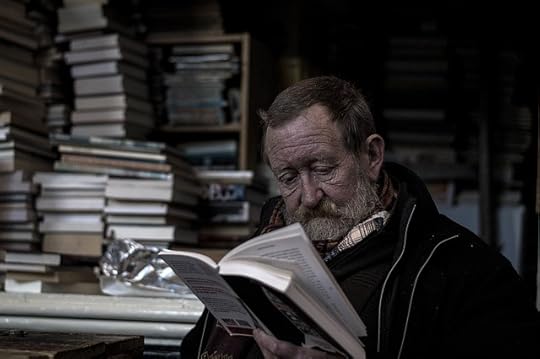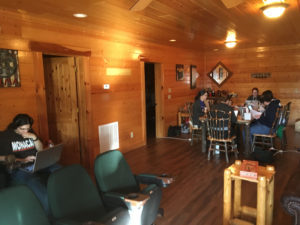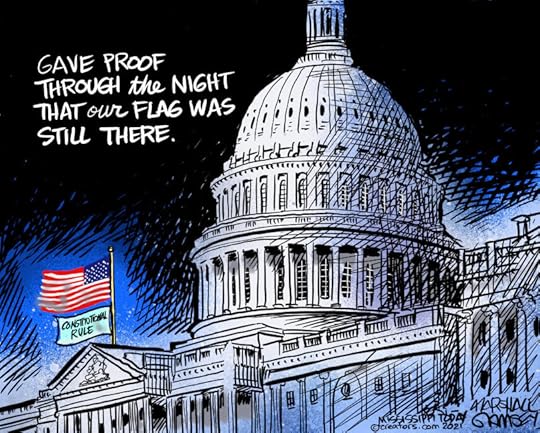Tim Dodge's Blog
January 9, 2021
Don’t Lose Hope
February 13, 2020
Creativity

Lately, I’ve been thinking a lot about the creative process. I just finished reading Simple Dreams: A Musical Memoir by Linda Ronstadt, one of my favorite singers when I was a teenager. Her voice, which sadly has left her, still blows me away. Her song Maybe I’m Right from 1977 still breaks my heart just as much as it did when I was 16.
The book shows just what a serious musician she was. With every recording and every venture, she carefully planned out how she would sing a song, the arrangements she wanted, and the musicians she needed to make the sound in her head come alive. In addition to her career as a rock singer, she appeared on Broadway in Gilbert & Sullivan’s The Pirates of Penzance, sang the role of Mimi in Puccini’s opera La Boheme, made three albums of American standards with legendary arranger Nelson Riddle, and honored her Mexican heritage by recording albums of Mexican music. I’m hard pressed to think of another modern pop musician who embraced such a diversity of styles and musical genres.
Her painstaking approach to making music reminded me of my lifelong fascination with the music recording process. With the introduction of multi-track recording in the 1950s, musicians were no longer limited to capturing the sound of a band performing together at the same time. Modern recording is built on layers of tracks, each track capturing an individual instrumental or vocal performance, some recorded well after the original performance. This is how performers can sing harmonies with themselves, how a guitar solo can sound like three guitarists are playing the same notes at the same time, and how a string quartet can backup a singer months after she’s left the studio. The possibilities for music creation are endless. I find it captivating.
I can (and have) spent entire nights fooling around with Apple’s GarageBand software, recording my fumbling acoustic guitar playing, layering more guitar parts on top, picking out the instrumental parts that come with the software, adding and removing instruments, switching sounds between speakers. I recorded a very short theme song for the video podcast I do for my day job. The whole thing probably isn’t two minutes long. I started work on it one Saturday night. The next time I looked at the clock, it was sometime Sunday morning.
That’s the thing I love about being a creative person – getting so deep into a work that time loses meaning. It’s happened when I’ve been writing, when I’ve created slide decks at work, when editing short videos, and when making music. The joy, really, is in the creating, the conjuring up of words or sounds in certain orders that no one has ever done before. Sometimes the result is uplifting, sometimes it’s pleasant, and other times it just sucks. No matter.
I feel most alive when I am creating. I imagine most people do. I’ll never be an architect, but I can only barely imagine how one feels when the building she imagined in sketches rises up into the sky. My dad loves to work with wood and has built many small pieces of furniture for family members, with my mom providing the coats of stain on top. It must be such a rush to see the finished product. He built a small, flat pirate ship when my oldest son was three years old, complete with gang plank, cannon, mast and steering wheel. Joel played on that for hours. What an amazing feeling that must have been to create something out of lumber and paint that his grandson loved.
I’m never going to write a rival to War and Peace, or record a song to the equal of the most beautiful recordings in existence. Perfectionism isn’t the point. Creating, contributing something, adding to the world’s store of art and literature, that’s the point. We all have creations of our own minds and talents to give. Some write books. Some write music. Some invent machines or think up new ways to make existing devices better. Some create new ways for people to live comfortably or cure their illnesses or reduce carbon emissions. We all live to create, to leave something good behind, to make a difference, to remind people long after we’re gone that we were here and we did something.
Will the world still listen to Linda Ronstadt singing You’re No Good a hundred years from now? Though it should, I have no idea. But it will build on her passion for crafting unique beautiful sounds, just the way the great masters of music did in the eighteenth and nineteenth centuries, the way Louis Armstrong, Leonard Bernstein and The Beatles did in the twentieth, and the way some band we’ve never heard of is doing in the upstairs of an old three-story bungalow somewhere in the Midwest right now.
That creative spark, that drive to make something new and better, to solve problems and bring people joy – that’s what should give us hope. The United States has in many ways become a messed up place in recent years, and it will always have issues (because all societies have issues,) but we have creativity. And that will always provide our way upward.
Now, stop what you’re doing and listen to Linda Ronstadt sing Long Long Time. You’ll thank me later.
The post Creativity appeared first on If My Thought-Dreams Could Be Seen.
August 12, 2019
Food Frustrations
 If they only knew what they were doing to themselves.
If they only knew what they were doing to themselves.I’ve been wrestling with a difficult decision. The quandary tugs at my conscience, pulls at my heartstrings, grasps me with guilt, and squeezes my gut. My flesh is weak, and my spirit … isn’t much stronger. But it’s probably time I faced reality.
I think I may have to give up eating.
“But Tim!” you may cry. “You, who have never met a cheeseburger you didn’t like! Who seldom pass on salmon! Who swoon for spaghetti with sausage! Who beg for burritos! Who have moaned for milkshakes! Why are you, of all people, cutting the cable on the Food Network?”
I know. I know. Believe me, I know. This is not a step I take lightly. I have pondered it in my quieter moments (quiet except for the crunch of tortilla chips.) The internal debates I’ve had as I picked miserably at my chicken francaise. The tears I’ve fought back as I’ve chewed on a coney (it’s a Central New York delicacy – look it up.) And yet I see no other way out.
Everything I Eat is Bad For Me
As we all remember from health class, there are four basic food groups: Proteins; fats; carbohydrates; and whiskey. Okay, I added that last one, but I think a strong argument can be made for it. Anyway, virtually everything that falls into any of those categories is unhealthy to consume. To wit:
The body has been known to break carbohydrates down into sugar. According to this article, which must be accurate because I found it on the Internet, sugar will make me:
FatBlindHave a heart attackOldStressed outToothless
These are generally considered to be undesirable characteristics. And sugar is fu–, I mean, freaking everywhere. I thought my bran flakes were good for me, but no — five grams of sugar. My whole wheat bread — sugar! My Greek yogurt — sugar! My one percent low-fat milk — still more sugar! For the love of God, I found out last week that even my Friday morning donuts have sugar!
And that’s not all. I have a large salad every day for lunch at work. Salads have vegetables. Vegetables are carbohydrates. And carbohydrates turn into — sugar! (See above, for those who are having trouble focusing because you are hungry.) My blueberries, bananas, apples, nectarines, red grapes, mushrooms, black olives — they are all part of the carbohydrate cabal. They look innocent when lightly bathed in olive oil, but once down the gullet, they shed their mild-mannered exterior and turn into that fiend sugar.
Clearly carbohydrates are a plot to kill me.
Fats
What if I swear off killer carbs and dive face first into the world of fats? Hamburgers. Cheese. Ice cream. Whole milk. (Dammit. Those last two have sugar.) Sausage. Butter. If it starts off solid but can liquify when heated to certain temperatures, then why not ingest it with gusto?
Well, it seems they want to kill me, too. Fats increase one’s HDL cholesterol (I’m told that’s the bad kind,) and high cholesterol does not bode well for those who want their hearts to continue beating. They also make you, well, fat. Or at least that’s what they’ve done to me. A long glance in the bathroom mirror advises me that I really don’t need any added fats in my diet.
So, if sugar doesn’t do me in, fats will happily take up the slack.
Alternatives Are Fine if You Have No Conscience
That leave protein. The building blocks of muscular cell growth. Lean meats, fish, nuts … the healthy stuff, right? Too bad factory farms torture the animals before prepping them for my plate. And that the human race is over-fishing the oceans. And that almonds use a ton of water in the cultivation process, water that the Western states can scarcely afford.
Sure, I could get protein from plant sources, but as I explained above, protein-bearing vegetables also have carbs, which turn to sugar, which will conspire with fats to kill me. We’re talking lose-lose-lose here.
The Ultimate Solution
If I don’t want to be haunted by the thought of what my consumption is doing to other living creatures and the environment, and I don’t want carbs and fats circling me like a couple of ninjas waiting to send me to the netherworld, the only remaining course is to give up eating. So …
Farewell, pizza with extra pepperoni …
Auf wiedersehen, my beloved chocolate chip pancakes …
Carry on without me, oh cucumbers …
Remember me fondly, dearest fried rice …
Forget me not, french fries, for you will always be close to my not-yet-clogged-up heart …
(I’ll need a moment to compose myself.)
Okay, then. It’s settled. If I want to live and live with myself, I must give up those occasions of sin that make life worth living.
But I’ll be honest: It’s leaving a bad taste in my mouth. One that could be erased by Chinese takeout.
The post Food Frustrations appeared first on If My Thought-Dreams Could Be Seen.
August 5, 2019
Things I’m Learning in 2019

Without actually intending to, I have set about learning some new skills and areas of interest this summer. I didn’t make a New Year’s resolution to learn new things in 2019; it probably wouldn’t have happened if I had. Nevertheless, I am proving again to myself that there are always new things to learn. In no particular order, here’s what I’m getting to know this year:
Soccer
I followed the FIFA Women’s World Cup pretty closely. Although I obviously favored our world champion U.S. Women’s National Team, I watched a few matches between other countries as well. I’ve watched soccer on and off over the years. My college had a pretty decent soccer program when I was an undergrad, and I went to one or two matches. My middle son played for a few years when he was middle school aged. I usually watch at least some of the men’s World Cup, even last year when the U.S.A. didn’t qualify. However, it has been the unparalleled success of the American women that has kept me watching (I can ride a bandwagon just as well as the next guy.)
I wanted a Carli Lloyd t-shirt after the 2015 World Cup; I laughed out loud when she scored a goal from midfield in the final against Japan. Unfortunately, I couldn’t find one in any of the sports memorabilia stores around here. Regardless, when this year’s tournament rolled around, I was primed. And a funny thing happened: For the first time, I started to understand the game.
I didn’t get it when my son played, and I watched a lot of matches in a lot of cold weather. But now I’ve begun to appreciate the passing, the attacks, the tackles, the set-ups for corner kicks, the trick moves, all of it. I yell at the TV when I see an inexcusable no-call on an obvious foul. I understand stoppage time (though I still don’t get the no-time-outs thing; it has to be tradition.) I think I might even be close to getting the offside rule.
It’s a bit like opening my eyes to a whole new, previously ignored world. If I were 30 years younger, I would try to find an amateur league to play in. My high school was too small to have a soccer team, so I didn’t have the opportunity to play in my teens. Too bad; I’ve never been overly sure on my feet, but with practice I might have been a decent player, if only on defense.
Anyway, since the World Cup ended on July 7 (the day after my oldest son and his lovely wife got married, the subject of another post,) I’ve been watching NWSL soccer matches on Yahoo! and ESPN. The closest team to me is Sky Blue FC, located in northern New Jersey and in dead last in the standings, so I’ve adopted them as my team. It hurts not at all that Carli Lloyd plays for them.
Slide Guitar
I love the sound of slide guitar, and it’s long been one of my round tuits to become proficient at it. For those who may not know, you play slide guitar by placing a tube of some kind (metal, glass, whatever) on one finger of the hand that’s on the fret board. That finger slides up and down the strings, producing a sound that is wicked or sad, depending on what you’re going for. Every year during Holy Week when I hear the old spiritual Were You There, I imagine how good it would sound on slide guitar. One of these days …
Anyway, this summer I’ve become more serious. Type the search term “how to play slide guitar” into the You Tube search field and you’ll get no shortage of tutorials. I’ve experimented with open G tuning (tuning the guitar strings so that they make a G major chord if you don’t press any of them down.) One of my best college friends and I have played the Jethro Tull song Locomotive Breath together as long as we’ve known each other. I’ve got the rhythm guitar part with a slide down. My goal is to take be able to play a lead guitar solo on slide that won’t make people cringe. This is called growth, my friends.
GarageBand
When I was 13, I learned that musicians record their parts individually rather than necessarily all of them playing the song at the same time. My mind was blown. Ever since then, I’ve had a fascination with multi-track recording.
GarageBand is audio production software that comes installed on every Apple Macintosh computer. I’ve used it in the past; I produced every episode of my late, not lamented podcast The Geek Side of Life using it. This year, though, I’ve made an effort to learn how to create music with it. Last winter I recorded a version of Gordon Lightfoot’s song The Wreck of the Edmund Fitzgerald in which I played rhythm and lead guitars, sang, and played two software instruments. The results were so-so, but it was a ton of fun. It was a time rabbit hole. I spent an entire Saturday on a five-minute song and could have spent more time than that.
A couple of months ago I created theme music for the videos I do for my day job. I built it entirely out of GarageBand loops. No actual musical instruments were harmed during the production of the piece. A rock masterpiece it is not, but I had so much fun doing it. It was a Saturday night. I don’t know what time I started, but next thing I knew it was one in the morning and I didn’t feel tired. Time becomes irrelevant when I focus on creating something. You can listen to the results by playing the track below.
That said, I’m sure I know about five percent of GarageBand’s features and capabilities. I’ve subscribed to a series of You Tube videos that give tutorials. I expect that learning how to create with that program will be very rewarding for me. I will never be a master musician (I don’t have the desire to put in the time required,) but I can create songs that a few people might like, I’ll have a really good time, and I’ll learn some audio production skills. Not a bad way to spend my time.
Learning
This is my version of self-improvement for the summer of 2019. Will it make me a better person? I don’t know; probably not. It might make me a more interesting person, at least to some people. At any rate, I want to keep learning. I want to learn more about the physical sciences and foreign languages and folk stories that can inspire my fiction and computer coding.
For however many days or years I have left, I want to keep learning. It’s what makes life interesting.
The post Things I’m Learning in 2019 appeared first on If My Thought-Dreams Could Be Seen.
July 29, 2019
5 Rules For Non-Fiction Writing

Let’s talk about non-fiction writing.
This is the first in what I hope will become a regular series of posts to reinvigorate this blog. I recently had a none-too-pleasant experience with malware attacking my site. This resulted in my hosting provider taking the site down until I got it cleaned up, plus the outlay of a few hundred dollars to prevent future attacks. It’s hard to justify that kind of expense in time and money if I don’t actually publish. So here I am.
I want future success as a fiction writer. However, I actually spend a larger share of my time writing non-fiction. I write blog posts and news releases at my day job, and I write a variety of articles – descriptions of legal disputes, discussions of specific business topics, and other news releases – for freelance clients.
Over the years, I have developed rules for myself that govern how I approach and write non-fiction pieces. Some of them came from comments I have received from clients when they’ve asked me to make changes. Others are my own biases. Still others are from my observations of the things I hate about many articles I read online.
Too many pieces are a chore to get through. They struggle to hold the reader’s interest, and that’s a shame. The author has knowledge to share and that the reader could use, but the message gets lost in a mud pit of prose. However, we can avoid this unfortunate fate by following these rules. I will confess up front to not always following them perfectly, but they are my guide posts.
Try to tell a non-fiction story
Readers of non-fiction writing need a reason to care about what comes next, whether they’re reading The Fellowship of the Ring or an explanation of how to play slide guitar (a skill I’m trying to learn this summer.) Note how Steve James progresses through this article: “First, your slide should be about as long as the pinky of your fretting hand, slipping comfortably on your finger … Slide into each note from below … alter the major scale by adding the ‘blue’ notes in Ex. 2 …” He’s telling you how to play slide, but he’s also saying, “and here’s what happens next.” It’s story as much as instruction. By the end of the article, the reader has some hope (however dim) that he will eventually play slide guitar like Derek Trucks.
Lay off the industry jargon
This can be a tough one. We all have our areas of expertise. Anyone who has spent a large part of her career in a single industry or occupation uses the common words and phrases of that field without a second thought. That is a good thing in the workplace; everyone has a commonly understood language, so it’s unnecessary to constantly define terms. It can be a bad thing in a piece of writing aimed at an audience outside the industry.
I’ve worked in the insurance industry for all but three of the past 34 years. If I tell you that you should be worried about a limitation built into a definition referenced in an insuring agreement in a Homeowners insurance policy, I’ll probably lose you halfway through the sentence. On the other hand, if I tell you that your Homeowners policy probably says that you won’t get paid if your house burns down because you don’t live there anymore (relocated, retired to South Carolina, whatever,) that might just get your intention. Your next thought will either be WTF? or “Why?” Either way, you may well be tempted to keep reading.
Lay off business-speak
I’ll put my cards on the table: I despise business jargon. If you work in an office, you are doubtless familiar with the words and phrases that people believe make them sound sophisticated, such as:
“Utilize”“Circle back”“Reach out”“Outside the box”“Strategize”
Have I ever used any of these? Of course. However, their overuse has made me hyper-aware of them. My work colleagues have pretty much guaranteed that I will rarely, if ever, “reach out” to anyone ever again. These and other words and phrases have ceased to be meaningful and instead made the transition into being annoying. Writers: Avoid annoying your readers.
Acronyms are okay; explained acronyms are better
We use acronyms because they’re easier and faster to say than the names and terms they stand for. NFL is faster to say than National Football League; NYSDFS rolls off the tongue and fingers more easily than New York State Department of Financial Services. I say, acronym to your heart’s content (I just turned it into a verb,) but the first time you use the acronym in a piece of writing provide the full name of what it stands for. Don’t assume that all of your readers know; I promise you, not all of them do.
Tell the non-fiction reader why she should care
I don’t have a problem consuming foods that contain gluten, but I have a dear friend who has suffered for a long time with Celiac disease. Because I care about her, I might read about the invention of gluten-free beers that don’t suck. If I’m writing about a court decision, I want people to know how that decision will impact their lives and businesses. People read our work because they want to either learn something or experience something. Failure to deliver leaves the reader feeling cheated and wondering why she wasted her time on it. Don’t cheat the reader. Give her a reason to care,
Those are my top five rules for non-fiction writing. I imagine you may disagree with some of these or have others that you think rank a bit higher. That’s great, and I would love to hear about them in the comments. Until then, here’s to good, clear writing that will leave the reader wanting more!
The post 5 Rules For Non-Fiction Writing appeared first on If My Thought-Dreams Could Be Seen.
May 24, 2018
My Balticon 52 Schedule

If it’s Memorial Day weekend, it must be time for Balticon, the annual Maryland regional science fiction and fantasy convention. This will be my ninth time attending (every Balticon since 2009 except for the year my sister got married) and probably my fourth or fifth as a guest. It is unquestionably one of my favorite weekends of the year – part fandom, part family reunion, and usually educational. I wore out my iPad taking notes last year.
As of right now (the day before the con opens), this is my panel schedule for the weekend:
Friday, May 25:
Science Fiction and Sports, Room 8029, 4:00 pm (I will be the moderator)
Grammar For The Afflicted and Conflicted Writer, St. George Room, 5:00 pm
Mark Twain Versus James Fenimore Cooper – Literary Criticism At Its Finest, Room 9029, 9:00 pm
Saturday, May 26
Making the Most of the Topic, Pride of Baltimore II Room, 4:00 pm
Sunday, May 27
Reading in the St. George Room, 11:00 am
Which Way Do We Go, Pride of Baltimore II Room, 6:00 pm
Comic SFF: More Than Just Jokes, Room 8005, 7:00 pm
Monday, May 28
Non-Genre Fiction That Inspires Us, Pride of Baltimore II Room, 10:00 am (I will be the moderator)
The complete con schedule lists the dozens of panels I will want to attend. If you’re going to be at Balticon, please say hi if you see me. It will be a great weekend of discussions, art, music, and friends.
March 6, 2018
On Top Of Old Smoky

Writers hard at work
I’m on a flight from St. Louis to Philadelphia, on my way home from the business trip that followed the Smoky Writers 2018 retreat. I left home ten days ago, days that went by in a blur, but what a fantastic blur.
I’ve blogged before about Smoky Writers. This was my third time, and it was my most productive retreat yet. In 2016 and 2017, I focused almost entirely on the novel I tentatively titled Subliminal. At some point over the last year, that book ceased to be fun to write. It was a chore, and I became very adept at avoiding it.
Last December, I sought advice from the best writing advisors I know – my fellow Smoky Writers. After hearing what they had to say, I decided that come January 1, 2018, I would be working on something new, whether I had completed Subliminal or not. The book remains unfinished. While I may return to it someday, for now it is off my plate. A book that was not fun for me to write would not be fun for others to read.
Instead, I decided to switch gears and write some short stories, for a few reasons. I wanted the sense of accomplishment that comes with completing a work. I cannot describe for you how it feels to finish the first draft of a novel, but I sure wish I could bottle it. A few writers finished novels during last week’s retreat, and they know exactly what I’m talking about. Finishing a short story isn’t quite the same euphoria, but completing some projects reassured me that I could still do it. Also, I wanted to have several pieces to put out on submission. I’ve concluded that real writers put themselves out there and try to sell their work. I want to be in a situation where I always have at least one piece out on submission, and preferably multiple pieces.
In that spirit, I flew to Knoxville, Tennessee on February 24 with the goal of returning with five or six new short stories. I’m very happy to say I did that. Between Monday, Feb. 26 and Saturday, March 3, I wrote five new stories from scratch and finished a sixth that I had been working on in the weeks leading up to the retreat. I wrote 20,176 words in all over those six days, an average of 3,363 words per day. My goal had been 5,000 per day, but for me the word count goal was secondary to the goal of producing new, complete stories. Because I am coming home with these new works, I feel this was my most productive and satisfying Smoky Writers retreat yet.
Of course, the work is only part of the experience, as important as it is. This retreat is also a family reunion of sorts, and I do consider my friends there (we refer to ourselves as “Smokies”) to be family. We celebrate each others’ achievements; we laugh together; sometimes, we cry together; and this year we did a lot of convalescing. We had much more physical illness this year than we did my other two years. I fought a head cold the entire time; one person got the flu just before the retreat was due to start and delayed her arrival until after she was no longer contagious. The sounds of coughing echoed throughout the house. One Smoky is also an expectant mother, and she got knocked for a loop by illness halfway through the week. Yet another became so ill from overwork in the weeks before the retreat that she was pretty much in seclusion the last two days. Another was knocked flat on her back one day by headaches and fatigue. It some ways, it was not an easy week.
And no one could leave real life entirely behind. One Smoky had to cancel at the last minute due to a family illness; another was coping with the serious illness of a beloved pet and nearly skipped the retreat. One of our awesome gourmet cooks was called home early due to family responsibilities.
And yet … the night the expectant mom was bedridden, a bunch of us crowded around her bed and read her the stories we’d written that day. A couple of people made a special trip to the airport to pick up the Smoky who has the ill pet. When the one cook had to leave, a few of the writers who have culinary skills jumped in to help out, and they helped make some phenomenal meals. We brought snacks and drinks to people who could use them, we checked up on those who were having issues back home, we gave a lot of hugs and cheered a lot of fine fiction-writing. We were there for each other; I know they were certainly there for me. That’s the definition of family, or at least it should be.
All too quickly, Sunday morning came and we had to say goodbye again, but we have great memories and some videos (check out Tee Morris’s Facebook page for videos of some of our morning walks through the mountains.) It is not an exaggeration to say that I’ve already started counting the weeks until next year (50.5, unless the dates change.) I will see some of them between now and then. I am long overdue for a trip to northern Virginia, and a theatrical version of Katie Bryski’s Six Stories, Told At Night will be produced at this summer’s Toronto Fringe Festival; getting north of the border to see that is a priority for me. Other Smokies will visit the northeast or I’ll visit where they live. I won’t wait until next February to see all of them.
And I will continue to write. Last year, I gave up my seat on the Liverpool Public Library’s board of trustees, and I dropped other commitments so that I could free up more time. I loved being a library trustee, but I needed to make space, and it was the right thing to do. I’m still writing freelance insurance pieces, though not as many, so I have more time for fiction. Since I was seven or eight years old, I’ve wanted to be a writer, and I’m still banging away at that dream. Smoky Writers is one week out of 52. Productivity must continue the rest of the year.
It was back to real life yesterday with a day-long (but also very productive) meeting in St. Louis and a crisis erupting back in the office. Tomorrow I’ll be an insurance geek again, but I’ll be one with a basket full of new stories and a renewed sense of what I really want to be.
I think in the end all we really have is our gifts, the lives we touch and the lives who touch us. If this week has reminded me of nothing else, it has reminded me of just how much I have been given in all three categories. I have the gift of knowing how to write words in ways that affect people (at least sometimes), and I have so many people inside and outside the writing community who mean the world to me. Everyone should be so lucky as I.
Until next year, my friends. Write lots of words.
October 3, 2017
Into the Great Wide Open
It must be a sign of my age, because I find myself once again posting about a great musician who has left us too soon. What can I say about Tom Petty that others aren’t saying more eloquently than I could? Nothing. But I can share one of my favorite songs of his. It’s not one of his big hits, but I love the feel of this song. He sang it with a southern accent.
If, like me, you believe in Heaven, then you know there is one awesome concert going on. Turn the amps up to 11.
August 15, 2017
The Power of Words

“You shall not bear hatred for your brother or sister in your heart.
Though you may have to reprove your fellow citizen,
do not incur sin because of him.
Take no revenge and cherish no grudge against any of your people.
You shall love your neighbor as yourself.”
― Leviticus 19:17 – 18
“The scream of the twelve-inch shrapnel is more penetrating than the hiss from a thousand Jewish newspaper vipers. Therefore let them go on with their hissing.”
― Adolf Hitler, Mein Kampf
“Love is the bridge between you and everything.”
― Rumi
“You will not replace us
Jew will not replace us”
― white supremacists marching in Charlottesville, Virginia, Aug. 11, 2017
“There is nothing noble in being superior to your fellow man; true nobility is being superior to your former self.”
― Ernest Hemingway
“When you see these towns and when you see these thugs being thrown into the back of a paddy wagon, you just see them thrown in, rough, and I said, ‘Please don’t be too nice’ … Like when you guys put somebody in the car and you’re protecting their head, you know, the way you put their hand over, like, don’t hit their head and they’ve just killed somebody, don’t hit their head, I said, ‘You can take the hand away, OK?’”
― U.S. President Donald J. Trump speaking to a group of law enforcement officers, July 28, 2017
“Cultivate peace and harmony with all…”
― U.S. President George Washington, Sept. 19, 1796
As a writer, by definition I traffic in words. Like all writers, I write to make an impact. I want my words to educate, or inspire, or entertain, or to create emotional reactions. These are every writer’s goals; if you’re not attempting to do one or more of these things, why bother? Writers do what they do to change the reader’s or listener’s experience.
Events over the past several years have often caused me to reflect on the power of words. The quotes above send distinct messages. Some are messages of violence and hate. Others profess peace and love. I find the verse from the Book of Leviticus especially powerful because so many choose to cite that book’s admonition against homosexuality as justification for oppression of the LGBTQ community. Those who do so overlook the verse I quoted.
Contrast the quotes from the first president of the U.S. and the most recent president. Washington spoke of peace and harmony; Trump spoke of roughing up criminal suspects. Look, I’m as susceptible to human emotion and tendencies as any other guy; if I were to be in a position of authority over someone suspected of committing a violent crime, I would certainly be tempted to lash out. That’s why the U.S. is a nation governed by laws, not one governed by the emotions of weak men. Washington appealed to what his fifteenth successor called “the better angels of our nature.” His forty-fourth successor appealed to our blood lust.
The dictator who forever shamed the great people of Germany spewed poisonous words against a scapegoated minority. The goons who sought to intimidate the people of Charlottesville last weekend echoed his vile words. Hemingway offered a devastating response to the supremacists by reminding us that we are all works in progress, painstakingly trying to improve ourselves in the face of our human tendencies toward laziness, animosity and resentment. Rumi spoke simply about the great things that love can build.
What we say and what we write matters. My words can be cruel or compassionate; they can spread anger or understanding; they can create division or strengthen bonds. The choice is mine.
So much of the political anger in America today can be traced back to something someone said in a speech or wrote in a comment posted in the heat of the amount on the Internet. Each side points to the other and exclaims, “They started it!” And both sides are right. And both sides can end it.
If Heather Heyer’s death is to have any meaning at all, let it remind us of the power of words in our lives, our society, and our country. And let it inspire us to use those words with care so that one day we can look back on the ugliness of the Charlottesville riots as a relic of a less-civilized age.
May 27, 2017
Gregg Allman
We’ve lost another great musician too young. Gregg Allman, the surviving Allman brother of the Allman Brothers Band, passed away today at age 69. He had been ill for some time, so the news was not surprising, but it was still shocking and sad.
From the 1960’s until recently, the ABB was among the elite American rock groups, mixing blues, jazz and good old Southern rock into a unique sound that grabbed you hard and wouldn’t let you go. Originally formed with his brother, the late slide guitar virtuoso Gregg, guitarist Dickie Betts and others, the Allman Brothers Band produced masterpieces like “Whipping Post,” “In Memory of Elizabeth Reed,” “Statesboro Blues,” “Jessica,” “Melissa,” and “Blue Sky.” Gregg Allman played a ghostly-sounding organ and growled his lead vocals, intertwining with extended guitar solos and a rock-solid rhythm section in mesmerizing jam sessions.
Duane died in a motorcycle accident at a very young age, leaving Betts to take over the lead guitar duties. In later years, Betts left the band and Derek Trucks and Warren Haynes very ably took over the guitar duties. I saw the ABB play , and they sounded as fresh and vibrant as they did on their classic Live at the Fillmore East album from 1971. They played all the classic songs, including Gregg’s “Midnight Rider” and a cover of Derek and the Dominos’ “Layla” (a song that Duane played on as a part-time member of that group.) It’s a memory I treasure.
Drummer Butch Trucks (Derek’s uncle) passed away not long ago, and today Gregg has joined him, Duane and original bassist Berry Oakley in the afterlife. I sometimes feel like this blog is a series of obituaries for the musicians I’ve loved all my life. Today, Gregg Allman assumes his place in my hall of fame. I share with you this video to give you a glimpse of his greatness. He left us a superb body of music. Selfishly, I only wish he could have left more.
So long, Midnight Rider. Rest in peace.




